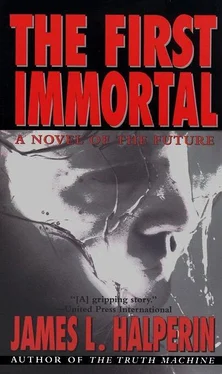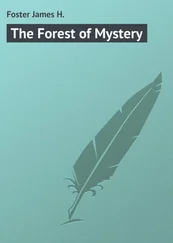“You’re a man of admirable passions, then as now,” Yamatsuo said.
A stone in the water, Ben thought. Then he said his good-byes.
June 2, 1988
Sirens blaring, the ambulance tore through Boston Common, rushing Dr. Benjamin Smith to New England Medical Center. Startled motorists pulled to one side as the three-year-old Ford transport van sped through traffic lights and over-wide turns. Then, with only the barest hesitation, the drivers returned to traffic and their own daily concerns.
Both ambulance attendants wheeled him through the emergency entrance toward intensive care. One of them whispered to a nurse, “Looks like a myocardial infarction. Probably massive.”
Ben wondered if they realized he could hear them. He’d treated many terminal patients himself, and had long sympathized with the helplessness felt by those who were dying or debilitated from illness. Their minds often became incapacitated along with their bodies. Inability to comprehend their predicament, Ben had always imagined, might be as much blessing as curse.
He understood that such loss of faculty was caused not only by physiological circumstance, but also by feelings of helplessness and loss of control. And now, feeling that helpless himself, he found his frustration worse than he could have anticipated or understood. He tried to focus on an internal pinpoint that was little more than hope. He knew his mind was clouded; he could barely remember his previous decisions, and creative thought was a struggle. Yet he’d methodically patterned a plan of action into his brain over the past five years:
I will show no ambivalence toward the freezer.
Now, even as his mind faltered and he questioned his own ability to judge, even as his reasons for embracing cryonics faded like a city disappearing into afternoon fog, he reminded himself that although he could no longer see its edifices, they were still there. Thus he knew he must appear resolute. There was precious little else he could do for himself. He would just have to hope that his own preparations were adequate, and entrust his destiny to others.
A nurse looked down at his face. “Oh my God! Dr. Smith.” She didn’t know him personally, but almost every nurse at the hospital would have recognized him. She ran alongside them. “It’s gonna be okay. We’ll take care of you, sir.”
Before surrendering consciousness, Ben managed to whisper the three important words he’d long planned to say if he ever found himself in this situation: “Call Toby Fiske.”
Dr. Tobias Fiske arrived forty minutes later, just in time to watch his friend open his eyes. Ben lay flat on an ICU bed, attached to monitors, hooked to an IV unit, breathing oxygen through a mask. Toby realized that Ben’s body would be helpless, virtually immobile, but his mind might still be lucid.
“Hey, stranger. How you feelin’?”
Looking up, Ben licked his lips. “I’m not gonna make it, am I?” he gasped.
Toby stood for several seconds, wrestling with himself for the right vocal timbre, the proper facial expression. “Doesn’t look good.”
“How long?”
“Without a transplant, a few hours. At most.”
“What about a transplant?” Ben asked.
“Nothing suitable available. Odds of finding anything in time are less than one percent.” Toby had to look away from Ben while speaking these words.
“Oh.”
“Ben, your daughters are here—all of them. Right outside.”
“Gary?” Ben asked.
“Not yet.”
“Okay. In a minute.” Ben closed his eyes. “See my bracelet?” he whispered.
Toby nodded.
“Call the number.” Ben was breathing hard now, obviously straining to force out everything he needed to say. “But don’t get in… trouble for me. Promise, Toby. I’m asking you… as my doctor, not my friend.”
“I promise.”
“Couldn’t love you more… if you were… my brother.”
Toby wondered if Ben understood that to him their kinship extended far beyond brotherhood. Throughout his adolescence and even adulthood, his feelings of disenfranchisement—feelings he now attributed to his parents’ blind devotion to religion and lack of devotion to each other—had left him open to a sort of quasi-scientific thinking far beneath his intellectual potential. Without his friend’s guidance, Toby knew he would never have pursued a career in medicine. He might’ve wound up writing horoscopes for a second-market newspaper. Or joined the Moonies, for God’s sake.
But he simply answered, “I know,” squeezed Ben’s hand, slipped the bracelet off his wrist, and walked to the door.
Outside, now in tears, Toby told Rebecca, Maxine, and Jan, “Ben wants to see you.” He hugged Maxine. “His heart’s barely pumping. Probably only an hour or two before it gives out completely. And he knows it.” Then he trudged down the hall to the doctor’s phone and placed a call to the number on Ben’s bracelet.
An operator answered on the first ring. “Phoenix. Emergency response.”
Of Ben’s three daughters, Maxine was the physician, so the others now looked to her with uncustomary deference. Max would know best how to mask her sorrow. There would be plenty of time to mourn later; she’d want her father’s final moments to be as pleasant as possible.
“You comfortable, Daddy?” she asked, stroking his right hand. Ben figured she must have looked at his chart, and knew he could no longer feet his left. “Any pain?”
“Yes, plenty. But nothing hurts,” he said, forcing a half smile, dreading the freezer, now imagining claustrophobia beyond toleration. He felt terribly weak, too.
No one knew what to say.
Max forced herself to break the silence. “Remember when you took us all to the Grand Canyon? Must’ve been 1962, wasn’t it?”
Ben smiled.
“Of course we could never fly anywhere, like normal families,” Rebecca said.
“I still can’t believe we did that,” Jan laughed. “All six of us in that Cadillac with those foot-tall tail fins blocking the view. No station wagon for us! Five straight days there, and five straight days back. It’s amazing we didn’t kill each other.”
“And some of those motor lodges were so seedy,” Max added. “I can only imagine what caused those stains on the bedspreads. You and Mom in one room, and the four of us sharing another. Rebecca and I usually slept on the floor.”
“Yeah,” Jan said, “so you could talk and tell dirty jokes all night while Gary and I tried to sleep. God, I hated that.”
“Those trips you used to make us take,” Rebecca said, “y’know, Dad, I tell my friends about them sometimes, and they’re jealous. They say stuff like, ‘My parents never took us along on their vacations. They’d just ship us off to Grandma’s.’ And I’d always tell them they were the lucky ones. But that’s—that’s not how I really felt, not a bit.” She was gasping now, trying hard not to cry. “Of all the things about growing up in our family, those summer vacations are what I remember best. They were like getting to live a separate lifetime; an extra year each year. I swear I remember as much of those vacations as I can of the years separating them.”
“Dad,” Max asked, “you want to see your grandkids? I could ask a friend to pick them up and drive them here.”
Ben tried to shake his head. Tears formed. The last time they saw him would become one of their strongest memories. It couldn’t be like this. Grampas, he decided, should only be recalled in a grin.
“No,” he whispered slowly, haltingly, “I want ‘em to remember me playing soccer with ‘em, or taking them… to the zoo. Not lying here with a tube up my nose.” He gasped for air, caught his breath. “But you make sure they know I love them. Tell those kids… my last thoughts… were about them, all of ‘em, and my last hours were happy… because I was thinking about them.”
Читать дальше












